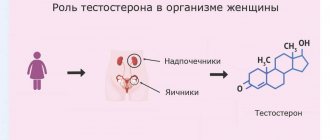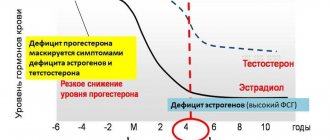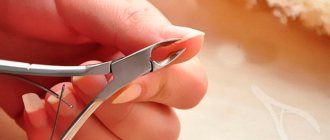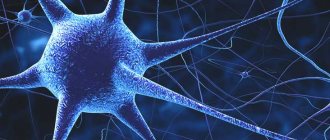What are hormones?
The content of the article
A hormone is a chemical substance. It is secreted by one tissue and travels with body fluids to affect other tissues of the body. Essentially, hormones are “chemical messengers.” Many hormones, especially those that affect growth and behavior, are important for both men and women.
The amounts and levels of hormones change daily. The sex hormones, estrogen and testosterone, are secreted in short bursts—pulses—that vary from hour to hour and even minute to minute.
The release of the hormone varies between night and daytime and from one stage of the menstrual cycle to the next.
Progress of the study
The patient is recommended to come to the laboratory 30 minutes before blood sampling in order to adapt to external conditions and normalize breathing. In a laboratory setting, blood is taken from a patient’s vein.
A standard set of materials is used: a disposable syringe or a special system. As a rule, the patient does not experience discomfort because a small amount of blood is needed for diagnosis. After 1-2 days, the laboratory provides diagnostic results on a special form. The interpretation of the results of the analysis is carried out exclusively by a doctor who knows the characteristics of the patient’s body.
The level of the hormone can be influenced by many different factors, ranging from stressful situations and nervous tension, to a specific diet and the presence of bad habits. Chronic diseases, episodes of decreased immune defense, use of steroid substances - these conditions can cause changes in the amount of testosterone in the human body.
In addition, testosterone levels often depend on the time of year.
For example, in the fall there is an increase in the hormone in the human body. Therefore, independent interpretation of research results in most cases turns out to be incorrect. So, the analysis should only be deciphered by your attending physician.
What is estrogen?
Estrogen is a class of related hormones that includes estriol, estradiol, and estrone.
Estriol is produced from the placenta during pregnancy. It is the main sex hormone in pregnant women. It is formed from developing ovarian follicles.
Estradiol is responsible for female characteristics and sexual functioning. In addition, estradiol is important for bone health in women. Changes in estradiol levels contribute to the development of most gynecological problems, including endometriosis, fibroids and even female cancers.
Estrone is widely distributed throughout the body. This is the main estrogen present after menopause.
How the body synthesizes testosterone
Testosterone in men is produced by Leydig cells, which are located in the testes or testicles. A small amount of it is also synthesized by the adrenal glands in both men and women.
5 milligrams of testosterone are synthesized in the body of a healthy man every day.
Only 1-2% of testosterone remains unchanged when it enters the bloodstream. It is also called free testosterone. The rest is held together by two proteins: albumin and sex hormone binding globulin (SHBG).
8 films and TV series related to genetics and bioengineering
The latter binds so tightly to the hormone that the body can no longer use it for its needs. Thus, the globulin controls the amount of testosterone that enters cells and tissues.
Testosterone, which binds to albumin, as well as free testosterone, is easily consumed by the cells and tissues of the body, which is why they are called bioavailable. In order not to get confused about the different forms of testosterone, we have depicted them in a diagram.
In the prostate gland, muscles, hair follicles and other testosterone-sensitive tissues, about 10% of testosterone is converted into the more powerful dehydrotestosterone. It is he who is responsible for all the functions that are attributed to testosterone.
Why do estrogen levels drop?
Why do estrogen levels drop?
There are many reasons why estrogen levels drop, including:
- hypogonadism;
- hypopituitarism;
- disruption of pregnancy (estriol);
- perimenopause and menopause (estradiol);
- polycystic ovary syndrome (PCOS);
- anorexia nervosa (eating disorder);
- extreme exercise or training;
- medications that block estrogen, such as clomiphene.
Additionally, women experience low estrogen levels immediately after childbirth, as well as during breastfeeding.
Hormone replacement therapy
Androgen hormone replacement therapy involves replenishing testosterone deficiency with various dosage forms of artificial testosterone.
Short-acting testosterone preparations:
- Sustanon-250 (manufactured by Organon , the Netherlands) – 1.0 ml. an oil solution of four testosterone esters, differing in the rate of delivery and duration of action.
- Omnadren-250 (manufactured by Jelfa , Poland) – 1.0 ml. oil solution of two testosterone esters, differing in the rate of entry into the blood and duration of action
After a single intramuscular injection, a sufficient concentration of testosterone in the blood is maintained for no more than 14 days.
Long-acting testosterone preparation:
- Nebido (manufactured by Bayer , Germany). Available in 4.0 ml bottles. testosterone undecanoate oil solution
After a single intramuscular injection, it maintains the physiological concentration of testosterone in the blood for 10 to 14 weeks.
Cutaneous form of testosterone
- Cutaneous form of testosterone in the form of Androgel gel (manufactured by Besins International Belgigue, Belgium). Available in the form of a gel in 5.0 gram bags. It is applied to certain areas of the skin and provides a stable physiological concentration of the hormone in the blood for 24 hours.
All dosage forms of testosterone are prescription drugs and are available only with a doctor's prescription.
Today, drugs with a questionable effect on testosterone levels include numerous dietary supplements - dietary supplements based on plant raw materials.
The most well-known plants for their production are: Tribulus terrestris, Ginseng, Eleutherococcus, African creeping palm root, etc. They are produced under different brand names and have more of a general tonic effect than an androgenic one.
Do estrogen levels drop during menopause?
Yes. Estrogen levels drop during menopause. This is a natural condition for all women between the ages of 40 and 55. Also, a decrease in estrogen levels can occur suddenly in young women who have had their ovaries removed, leading to what is called surgical menopause.
Perimenopause is the transition period before menopause. At this stage, the first natural decline in estrogen levels and other physiological changes begin. Women going through perimenopause may experience weight gain along with other menopausal symptoms. For example, they may have irregular periods, hot flashes, and vaginal dryness.
On average, menopause occurs at age 51. When this happens, a woman's body produces less estrogen and progesterone. Declining estrogen levels during menopause can cause unpleasant symptoms, including:
- tides;
- night sweats;
- vaginal dryness or itching;
- loss of libido or sex drive.
Some women begin to act up. This may or may not be related to estrogen loss. Lower estrogen levels may also increase the risk of heart disease, stroke, and osteoporosis.
Androgen level rating scale
1. Do you notice a decrease in sexual desire (decreased pleasure from sex, lack of desire for sexual contact)? 2. Have you become less energetic? 3. Have you noticed a decrease in physical strength and endurance? 4. Has your height decreased? 5. Are you about (the feeling that the peak of life has been passed)? 6. Have you become sad and/or irritable? 7. Do you notice a decrease in the quality of erections? 8. Have you noticed a recent decline in your ability to participate in sports? 9. Do you fall asleep after lunch? 10. Has your performance decreased?
Testosterone deficiency is possible if the answer to questions 1.7 or any three other questions is positive.
Why do estrogen levels increase?
During puberty, estrogen levels increase - this is normal. This hormone promotes changes in the body of a young girl. For example, it plays a role in breast development, a more mature figure, fuller thighs, and the growth of pubic and armpit hair.
In addition, high estrogen levels are observed:
- in overweight women;
- during a healthy pregnancy;
- for tumors of the ovaries or adrenal glands.
Certain medications may increase estrogen levels, such as steroid medications, ampicillin, estrogen-containing medications, phenothiazines, and tetracyclines.
How do medications affect testosterone and sexual function?
Medicines taken for various diseases can negatively affect the level of testosterone in the blood. Therefore, self-administration of medications is unacceptable; only a doctor can prescribe treatment for you, taking into account possible adverse effects on sexual function.
What kind of medicines are these:
1. used for high blood pressure:
- methyldopa
- clonidine
- reserpine
- β-blockers (atenolol, anaprilin)
- prazosin
2. diuretics:
- veroshpiron
- hypotazid
- chlorthalidone
3. affecting the heart:
- digoxin
- verapamil
- antiarrhythmic drugs
4. affecting the central nervous system:
- antidepressants
- sleeping pills
- amphetamines
5. affecting the gastrointestinal tract:
- cerucal
- ranitidine
What happens when testosterone levels rise or fall?
What happens when testosterone levels rise or fall?
If the body produces too much testosterone, the patient may have irregular or absent periods. There may also be more body hair. Some women with high testosterone levels experience baldness. Other possible effects include acne, clitoral enlargement, increased muscle mass, and deepening of the voice.
High testosterone levels can also lead to infertility and are commonly seen in polycystic ovary syndrome (PCOS). PCOS is an endocrine disorder that is sometimes observed in women of childbearing age. Women with PCOS have symptoms similar to those caused by high testosterone levels.
These include:
- obesity;
- apple-shaped body;
- excess or thinning hair;
- acne;
- menstrual irregularities.
PCOS leads to the following changes:
- higher levels of circulating male hormones;
- insulin resistance;
- Carbohydrate intolerance – a condition in which you tend to gain weight;
- low levels of HDL - “good” cholesterol;
- elevated triglycerides;
- high LDL – “bad” cholesterol;
- obesity;
- high blood pressure.
As women with PCOS age, the presence of these risk factors increases their risk of heart disease.
During menopause, women experience a decrease in testosterone levels. This decrease may be due to decreased libido. Some findings suggest that testosterone replacement therapy may improve sexual function in some perimenopausal and postmenopausal women. Testosterone replacement is not recommended for women with breast or uterine cancer. Treatment may also increase the chance of heart disease and liver disease. Therefore, specialists are careful when prescribing such drugs.
Preparation for the procedure
Like any planned study, a blood test for testosterone should be carried out outside of acute viral and bacterial diseases, no earlier than two weeks after recovery.
Taking certain medications may affect test results; It is necessary to discuss with your doctor the list of medications used, and perhaps discontinue some of them in consultation with your doctor.
Blood collection should be done in the morning on an empty stomach, after 8-14 hours of overnight fasting. Drinking water is allowed. On the eve of the study, it is recommended to exclude significant physical and emotional stress and alcohol consumption. It is not recommended to smoke at least one hour before the test.
For women, the test is usually carried out 2-4 days after the start of menstruation, unless other conditions are recommended by the attending physician.
How do you know if your hormone levels are normal?
A gynecologist-endocrinologist can assess your health status and symptoms already during the physical examination. At this point, he determines whether further laboratory tests are needed to check hormone levels. These tests may be important if PCOS is suspected or if the patient has stopped menstruating due to excessive exercise or anorexia nervosa.
If tests show abnormal hormone levels, the doctor will definitely prescribe treatment.
If you find an error, please select a piece of text and press Ctrl+Enter
“Testosterone is a very insidious hormone”: interview with an endocrinologist
We continue a series of meetings with outstanding domestic doctors. Today - a detailed conversation about our endocrine system in general and the “favorite” male hormone testosterone in particular with the director of the Endocrinology Clinic of the First Moscow State Medical University. Sechenov Valery Fadeev.
We know that endocrinology is about hormones; we often hear “check your thyroid.” On the other hand, many have a rather poor idea of how the activity of the thyroid gland is related to the daily functioning of the body, in particular the male one.
There is a very big difference between the functioning of the female and male endocrine systems, despite the fact that the set of hormones in men and women is the same. The difference is in the quantity and nature of secretion. A significant part of the hormones in the female body is produced cyclically, and in the male body - tonically, that is, continuously, without monthly cyclicity. The human hypothalamic-pituitary system is tuned to such “male” hormone production by the appearance of a certain amount of testosterone during fetal development, from the moment of fertilization to the birth of the child.
I will ask you in particular detail about testosterone, which is of great interest to our readers. But let's start, if possible, with the basics - with the functions of the thyroid gland.
Thyroid hormones are the most ancient in origin; they regulate the most basic functions of the cell. And every cell. More precisely, they regulate the processes of oxidation and oxygen consumption by the cell. Our body can be compared to a stove in which a fire burns. We throw firewood there - what we eat. In order for a fire not to go out, oxygen is needed. There is a damper in the stove, and with its help we can make the flame stronger - by opening it wider, or we can dim it - leaving a small crack, and the fire will smolder. The function of thyroid hormones is to control the valve, or more precisely, the intensity of oxidation, combustion, which results in the formation of heat - the energy that every cell needs.
How did we even know that hormones exist in our body?
Before the concept of “hormone” appeared, we were talking about the so-called humoral factors. Back in the 14th century, the Chinese associated secondary sexual characteristics with them: doctors of that time said that “the beard is an external manifestation of the power of the male seed,” “the beard is related to the kidneys and testicles.” In the middle of the 19th century, the German professor Berthold conducted experiments: a rooster was castrated, as a result of which his secondary sexual characteristic, the comb, regressed. After this, the extract of the removed testes was injected into the cockerels, and the comb was restored. These were the first experiments related to testosterone. The very concept of “hormone” appeared later, at the beginning of the 20th century, and since then its interpretation has undergone numerous transformations.
Endocrinology was formed as a field of medicine dealing only with hormones?
Yes, classical endocrinology concerns seven anatomically distinguished endocrine glands: thyroid, parathyroid, pituitary gland, pancreas, adrenal cortex, testes and ovaries, pineal gland. These are endocrine glands that secrete hormones. Actually, the name “endocrinology” translates as “the science of what is secreted inside” - it studies the chemical substances secreted by these glands into the blood and regulating the functions of many cells.
Explain the interaction between the nervous and endocrine systems.
Comparing the nervous system with the endocrine system is like comparing a telephone and a radio. The nervous system is a telephone: wires-nerves that come from the brain and transmit information to a specific point. The hormonal gland produces information that is distributed through the blood to many people - like a radio that broadcasts from one point, but everyone hears it. That is, the impulse of the endocrine system is a loudspeaker. When there is a failure in the nervous system, only what is activated by this nerve stops working - one muscle: just like if you break a telephone wire, only the telephone will not work. And if the radio station breaks down, no one will hear the message. That is, the pathology of the endocrine system is multisystem - it is a pathology of many structures at once. An example is the hormones of the thyroid gland, which act on almost all cells of our body. In our cell, everything is energy-dependent - all enzyme systems, all their functioning, since every cell contains ATP, adenosine triphosphate - our battery. And the intensity of energy production in it is regulated by thyroid hormones.
Should a young man, who is not worried about anything, visit an endocrinologist one day for a prophylactic visit?
Preventive medicine in general is a rather controversial thing. The popular concept of “the more you examine, the better” is fundamentally wrong. In the modern world, unnecessary examinations can cause no less harm than their absence, including because their interpretation is very difficult. Ultrasound reveals one-millimeter structures in the thyroid gland. And they can make more noise without causing any consequences. We can talk about preventive endocrinology, first of all, in connection with blood sugar levels. If we are talking about an overweight man, it is advisable to control sugar from the age of 20–25 - at least once every few years. This should also be done if the parents were sick with diabetes or had cardiovascular pathology.
Are diseases of the endocrine system inherited?
The tendency is inherited. These are so-called multifactorial diseases - there is a certain predisposition that may or may not be realized. If a person is prone to diabetes, but does not gain excess weight, he may not get sick. That is, environmental factors, in particular food, can contribute to the implementation of the genetic factor. Thirty years ago we called type 2 diabetes age-related, but today it occurs even in children. Unfortunately, we often see diabetes in 25-year-old obese patients. By the way, it is important to say that there is an obvious connection between obesity and decreased testicular function. With severe obesity, testosterone levels decrease. The fact is that adipose tissue is the site of sex hormone exchange; when a man becomes obese, the balance of estrogen and testosterone changes. This leads to suppression of pituitary regulation of the testes and decreased testosterone production.
What do young men usually turn to an endocrinologist for?
In men aged 20–30 years, endocrine pathology occurs relatively infrequently—almost ten times less often than in women. But if a man develops, say, Graves' disease at a young age, then it is much more severe and has a worse prognosis. Why? It is difficult to say, there are no clearly proven explanations. But I repeat once again - at a young age, pathology of the thyroid gland in men is rare. The greatest problem is the decline in its functions, which occurs in men after 40 years of age. The symptoms of this disorder are very nonspecific: we can talk about, let’s say, an incomprehensibly bad state of health - a general loss of strength, lethargy, fatigue, decreased muscle tone, potency, libido, erectile dysfunction, that is, some non-specificity that could potentially be the background or a trail of any disease. In a hospital sample, as we call it, if a patient comes to the doctor and there is a set of these factors without an obvious concomitant disease, and even more so if it is present, it is better to check the function of the thyroid gland.
What methods are used for this today?
Blood is taken from a vein and one indicator is determined - TSH, thyroid-stimulating hormone of the pituitary gland. Its level allows you to more than accurately assess the functioning of the thyroid gland. Problems with this hormone are more common in women, but it is not uncommon for men either.
It turns out that from the point of view of the hormonal system, men are more protected by nature?
Yes, but they live on average twenty years less. In fact, a woman is protected by nature - and from the position of the endocrine system too. She still has the task of reproduction, while the biological significance of a man who has performed the copulatory function is practically complete.
If you remember the copulatory function, let's talk about testosterone, which worries everyone so much.
Testosterone is a very interesting hormone, one might say, insidious. This is the 21st century, and there is still no understanding of how to accurately determine it - all methods have flaws. Hormone levels are measured using immunometric methods, that is, using antibodies. Testosterone is a steroid hormone, very small in structure; the size of the antibody is a certain number of times larger. That is, the number of testosterone is a very delicate matter. It must be able to interpret it depending on the situation, in combination with other hormones, with gonadotropins - hormones of the anterior pituitary gland. Therefore, the prevailing opinion that if you were given a huge amount of testosterone in a laboratory, then you are a superman is wrong. In general, this is part of the myth that endocrinology is some kind of attachment to a hormonal laboratory: we sit here, send everyone for hormonal studies, get a number, and make a diagnosis. Absolute nonsense.
What is the main task of endocrinology?
This is a clinical discipline, the same as, say, cardiology. And the interpretation of laboratory tests is often at the last stage of our reasoning. The cardiologist also has an echocardiogram: it can be completely fine, but the person has a whole bunch of problems. The same can be said with regard to hormones: if the diagnosis could be made by numbers, I would not be needed here. You can assign a laboratory assistant to make diagnoses and write prescriptions directly on the hormonal test results form.
Let's trace the life process of testosterone in the context of the maturation of the male body.
Let's. We will omit puberty and early development - there are very complex, I would even say, ornate processes in the relationship between the hormones of the adrenal cortex and the testicles, which is hardly interesting to your readers. By the age of 20, testosterone production levels reach peak values, and from the age of 30, slowly, slowly, differently for everyone, but in general, quite naturally, they begin to decline. Testosterone is produced in the testicles, but it is a deep misconception to consider it a hormone created by nature only for erection. Erectile function can be completely normal even with low testosterone, but sex drive, desire, libido - call it what you want - will most likely be reduced. Testosterone is an anabolic steroid for the male body; it does almost everything that distinguishes a man from a woman; it contributes to the development of not only the reproductive system, but also the muscular system, the brain, and even the production of red blood cells. Without it, a man turns into a eunuch - a thin voice, lack of hair growth, flabby muscle system, obesity, tummy. But at the age of your readers, testosterone deficiency is quite rare. If you take one hundred percent of men aged 20–30 years with erectile dysfunction, then probably 90–95 percent have a psychogenic problem. After all, erectile function has many components, first of all, the brain; the system is very complex. And most often it fails due to various kinds of violations: childhood fears, complexes, neuroses, personality disorders, relationships between partners, that’s all. But the real testosterone deficiency, rather, looks towards the age of “50 plus”. And this is where a lot of speculation arises on this very topic.
Pharma machinations?
Partly yes. In part, the lobby of those involved in erectile dysfunction is inflating this topic. Both abroad and here we have “specialists” who are ready to pin testosterone deficiency on literally everyone, blaming almost all male diseases, including obesity, for this deficiency. Almost diabetes is treated with testosterone. After all, what is a deficit? The figure is below normal. And this concept is very relative, especially for hormones. This is the case when the word “norm” must be put in large quotation marks. There is no norm, there is a reference, and this is a statistical concept: they took, relatively speaking, one hundred healthy men aged 20–30 years, looked at testosterone, calculated the average, removed the Gaussian dome and got two numbers.
At the same time, there are characteristics of the population: racial, regional, age...
That's it, age. And here you can speculate endlessly. He moved the reading frame and said: “You have a deficit...”
"…take a pill".
Yes, “take a pill.” Firstly, there are not many studies that have studied the use of testosterone in older men, and secondly, they are not as long-lasting. Some of them had positive results, some had negative results in terms of cardiovascular risk.
So does artificially increasing testosterone levels entail a risk of cardiac problems?
I can’t give a definite answer. But research results in this sense are contradictory. There is a figure that clearly shows testosterone deficiency, then its administration has positive consequences. But if we take the “gray” zone, as we call it, when someone considers this value to be a deficit and others do not, here this assignment most often does not lead to any results. After all, hormones are part of a large integrated system within a person. Man, unfortunately, is mortal, and no one can do anything about it yet. A person ages, and all his systems age, including the endocrine system, integrally adapting to a particular age. And if at the age of 60 you begin to artificially make yourself 18 with the help of pills, you cause a conflict of systems. It’s not for nothing that the Old Testament says: “No one puts new wine into old wineskins; otherwise the new wine will burst the skins and flow out on its own, and the skins will be lost.” You see, a hormone is a systemically acting active element. If you introduced testosterone into the systemic circulation, it affected not only your penis: it affected the brain, the heart, the blood vessels, the liver - everything! This means that the consequences can also be systemic.
And unpredictable?
Well, if someone wants to experiment and is ready, as in “Egyptian Nights,” to get some kind of stroke during one sexual act, that’s his choice. But in any case, you shouldn’t do this at 20–30 years old. If you have sexual problems at this age, don’t immediately blame low testosterone. Yes, this happens, but extremely rarely, and then it is a serious violation. But often in such a situation they grasp at borderline results, when prescribing testosterone is simply a convenient solution for the doctor.
Why is such an appointment dangerous?
There is an aspect in which the male body is more delicate than the female - I'm talking about the production of sperm. External administration of testosterone suppresses it. In general, as soon as a person has even a severe runny nose with fever, spermatogenesis will be suppressed for some time. Nature has arranged it this way: a sick male should not fertilize females. You don’t even need a runny nose: let’s say a man is exhausted at work, is nervous, doesn’t get enough sleep at night - in this situation he will have low testosterone simply due to a general loss of strength. Even at a young age. We experimented in our clinic: we looked at testosterone in patients with diabetes during hospitalization, and then two weeks after he had been with us. First of all, the man got enough sleep. Secondly, we have put some general indicators in order. And after two weeks his testosterone is already normal! A single determination of testosterone cannot be trusted at all. And when they begin to evaluate the spermogram of a man who is sick with some kind of chronic disease, uncompensated, this is also absurd. The first thing you need to do is cure him. Bring it back to normal, and then evaluate the functioning of the reproductive system. Or he's on a drinking binge...
This is also an interesting topic - alcohol and male hormonal levels. Does whiskey actually lower blood sugar?
Any ethanol, any ethyl alcohol potentially blocks the production of glucose by the liver, and for some time can actually reduce sugar levels. But I don’t recommend treating diabetes with alcohol—it doesn’t matter whether it’s whiskey, vodka or tequila.
But what about the cherished 40 milligrams per day, which are allowed even by cardiologists?
40 milligrams is possible - of course, provided that the person is ready to stop there. Alcohol is a universal tranquilizer, and in the modern world it also plays a positive role, helping a person in a state of chronic stress to relieve this stress. Chronic stress, by the way, also has a bad effect on sexual function. So no one is against alcohol in small quantities to reduce stress. But in large cases, it only causes harm, disrupts erection and ejaculation. You ask about the connection with the functions of the thyroid gland - alcohol does not directly affect it. And on sexual function - only negatively.
Are you talking about fertility?
Exactly. In chronic alcoholics, testicular function is completely impaired. Against the background of intoxication, testosterone production decreases and spermatogenesis is disrupted, this has been proven. And if we are talking about fertility, today there are practically no medications that affect spermatogenesis. This is such a subtle and complex process that we have not yet learned how to interfere with it. In a woman, you can stimulate ovulation in order to obtain an egg, but if a man’s spermatogenic epithelium is affected, there are no treatment methods.
What exactly negatively affects the function of this epithelium?
The epithelium produces sperm. And many factors influence this process, including your own testosterone. The cells that produce it in the testicle are nearby and influence each other: Sertoli cells, Leydig cells, which form the spermatogenic epithelium, are connected in local regulation. Plus, testosterone production and sperm production in the testicle are influenced by pituitary hormones. So this epithelium is quite sensitive to toxic influences.
To anyone, not just alcohol?
Of course. Here is a simple example: let’s say, God forbid, if we are talking about malignant tumors for which chemotherapy is prescribed, practically the first thing that suffers is the spermatogenic epithelium. Because dividing cells are killed. So, sperm cryopreservation is recommended for young patients before prescribing antitumor chemotherapy.
Let's continue our endocrinological educational program. What is important to know about the work of the pituitary gland and hypothalamus?
We are talking, rather, about the work of the hypothalamic-pituitary system. The nuclei of the hypothalamus are the nuclei of the nervous system that produce humoral factors. These are, as a rule, very small molecules consisting of several amino acids, which enter the pituitary gland through very short vessels and there stimulate the production of pituitary hormones. The pituitary gland is such a conductor, a key regulatory structure of many elements of the endocrine system. This means that sexual function, the functioning of the thyroid gland, adrenal glands, the production of prolactin, the production of growth hormone and a number of other factors depend on it.
Including metabolism?
You know, endocrinologists get a little stupefied when they hear the expressions “metabolism is disturbed” or, say, “hormonal levels.” Human life is all about metabolism, and everything is involved in it, including eyes, teeth, hair, ears and nails.
Let's not fall into a stupor, let's return to the hypothalamus.
The hypothalamus interacts between the nervous and endocrine systems. These systems are interconnected, they function together. But, returning to the beginning of the conversation, nervous systems are a quick regulation, like a phone call: an impulse came and the muscles instantly contracted. The humoral system, including the production of hormones, is a slower basal regulation that carries out fundamental life processes. Here we must remember the evolution, the development of the animal world: it all started not with nerves, but with the fact that there was some kind of plasma in which certain substances circulated.
I sense echoes of an old interdisciplinary debate here...
No no. The nervous system, of course, is also important. We just talked a lot today, for example, about fertility, about sexual function. This is not a simple muscle contraction, it is a complex process extended over time, which is regulated precisely by the relationship of hormones. There's no way a nerve can run from the brain to the testicle and promote sperm production, you know? That would be too cool. And the hypothalamus is precisely responsible for the integrative interaction of nervous influences.
How does the male endocrine system respond to physical activity and the fuel with which these activities are artificially fueled? I'm talking about sports nutrition.
If you are already over 30, then you probably go to the gym for health, and not in order to turn yourself into a cabinet of muscles and seduce girls. At 18 years old, you can, of course, think that a woman needs your muscle mass, but in principle this is absolute stupidity and in 99% of cases it will not work. If you set yourself the task of seducing as many women as possible, you need to spend more effort on developing your brain. And in the gym - think about blood vessels, muscles and some kind of harmony. Now to the question of sports nutrition and energy drinks. I have a very negative attitude towards them. I don’t want to scare anyone, but I had to witness fatal myocardial dystrophy while taking a large number of energy drinks. As for hormones and, in particular, testosterone, unfortunately, I’m afraid that you and I will no longer be able to break the stereotypes that have developed in these gyms. We cannot explain that dabbling with testosterone will lead to the fact that by the time such a guy meets his one and only, he will have nothing left of his spermatogenic epithelium. I myself visit a fitness club and often find myself witnessing conversations between young people on, let’s say, medical topics. What I hear is not just wild - I don’t even have enough words to describe it: “Now I’m on androgens, then I dry out, then I add triiodothyronine...” It should be noted that most often people talk about these topics with, let’s say, not very high intellectual bar.
What does he add?
Triiodothyronine is a thyroid hormone. And then, with the appearance of an absolute expert, but with errors in basic concepts, such a person begins to give recommendations to another person. At the same time, we are talking about very serious hormonal drugs... A real panopticon, and with a health risk. As for consuming large amounts of proteins, this is first of all non-physiological; it puts a lot of stress on the kidneys. I have a lot of patients who are former serious athletes and those who served in special forces. During their physical activity, taking some medications and special nutrition is not entertainment, not a way to seduce a girl, but part of the hardest work with hyperstress. So, as a rule, these people have a whole bunch of endocrine and cardiovascular diseases. With age, many of them acquire obesity, hypertension, and diabetes.
Please tell us about anti-aging endocrinology, about age-related hormone therapy, which is fashionable today.
Due to the development in recent years of the anti-aging industry, most professional endocrinological associations have been forced to publish regulatory documents on hormone therapy: clinical recommendations for the treatment of hypothyroidism, hypogonadism, and growth hormone deficiency. Our professional position is clear: hormone therapy is indicated only and exclusively in situations of hormone deficiency. But there is a powerful anti-aging lobby, non-professional paramedical and other marginal associations. I attended their conferences: from the point of view of professional endocrinologist clinicians, what happens there sometimes looks outlandish. Self-indulgence in our sphere, as in any other sphere, ends badly. Growth hormone, for example, which is used for rejuvenation, is a growth factor; cells multiply from it, which means we can easily grow a tumor for ourselves. The danger is that the anti-aging industry is in an uncontrolled field: they do not need statistics, they do not need prospective studies, they live outside of medical ideology.
That is, starting to rejuvenate with the help of hormone therapy is, in general, a serious risk.
You need to rejuvenate when you are young. Our regulatory system is too complex for the introduction of one or another element into it to trigger any processes in the opposite direction. Today we have listed the classical hormones, but in addition to them there are about two hundred more, and they all participate in the functioning of the body. “Hormon,” by the way, does not come from the word “harmony,” as many people think, but from the word hormao — “put into action.” And all these actions should be, let’s say, proportional to each other. I repeat: the hormone acts on many structures at once, it enters the systemic bloodstream and reaches all cells. We have identified one of its functions, but there are a dozen more that we do not know about. For example, a nerve has one function - innervation of muscles, and a hormone is something more complex. Periodically, one of its effects pops up, and it begins: “This is the hormone of so-and-so.” Almost every hormone was at one time called the hormone of youth. There are episodes of their popularity: sometimes testosterone is popular in our country, sometimes prolactin, sometimes thyroxine. Then suddenly dehydroepiandrosterone is declared the hormone of youth - this is an androgen of the adrenal glands: at one time in the USA it could be bought at any pharmacy without any prescription.
In general, what should a young man do to preserve his endocrine system?
To begin with, surprisingly, remember a simple thing: salt must contain iodine. When your wife or girlfriend goes to the store, ask her not to waste money on various Japanese and Himalayan frills, but to buy our domestic salt, where it says “iodized” on the pack. Its effectiveness has been absolutely proven - it solves the problem of iodine deficiency, prevents the development of goiter and brings many other benefits. This is even more important for women, but men also need to ensure that they get enough iodine into their bodies. This is relative to the thyroid gland. As for diabetes mellitus, it is clear that the disease is associated with a hereditary predisposition, but we must remember its direct connection with excess weight: the stomach not only interferes with tying shoelaces, but also affects our general condition and cardiovascular system. Next is sexual function. A man is given spermatogenic epithelium, one for life, and he must take care of it. The quality of sperm at 20 years old and at 60 differs greatly: it reflects everything that befalls us - from the head and nerves to the environment, not to mention any intoxication, especially chronic ones. So, as you can see, I cannot recommend anything that goes beyond the concept of a healthy lifestyle, although this term smacks of something archaic. Physical activity is needed, and it is highly desirable - without the use of various stimulants. When you're twenty, it seems like you can cram any crap into yourself. But a dozen or two years pass, and we understand that life is not endless. And here the results of all our youthful experiments fall upon us... Do your humble servant know how much he studied before he began to introduce something into the patients’ bodies? To prescribe the hormone, I completed six years of university, two years of residency, graduate school, defended several dissertations, and believe me, I am still checking, rechecking and weighing everything. I never prescribe hormones at the patient’s first visit; I suggest that patients be examined over time and only then do I make a decision. And when boys in fitness clubs start playing around with hormones, it’s crazy. In my opinion, a certain inferiority is manifested here, male complexes, which they try to compensate for by pumping up muscles. So in this sense, I would recommend starting with thinking about what's going on in your head, not what's going on with your testosterone.
Publication link: MensHealth









